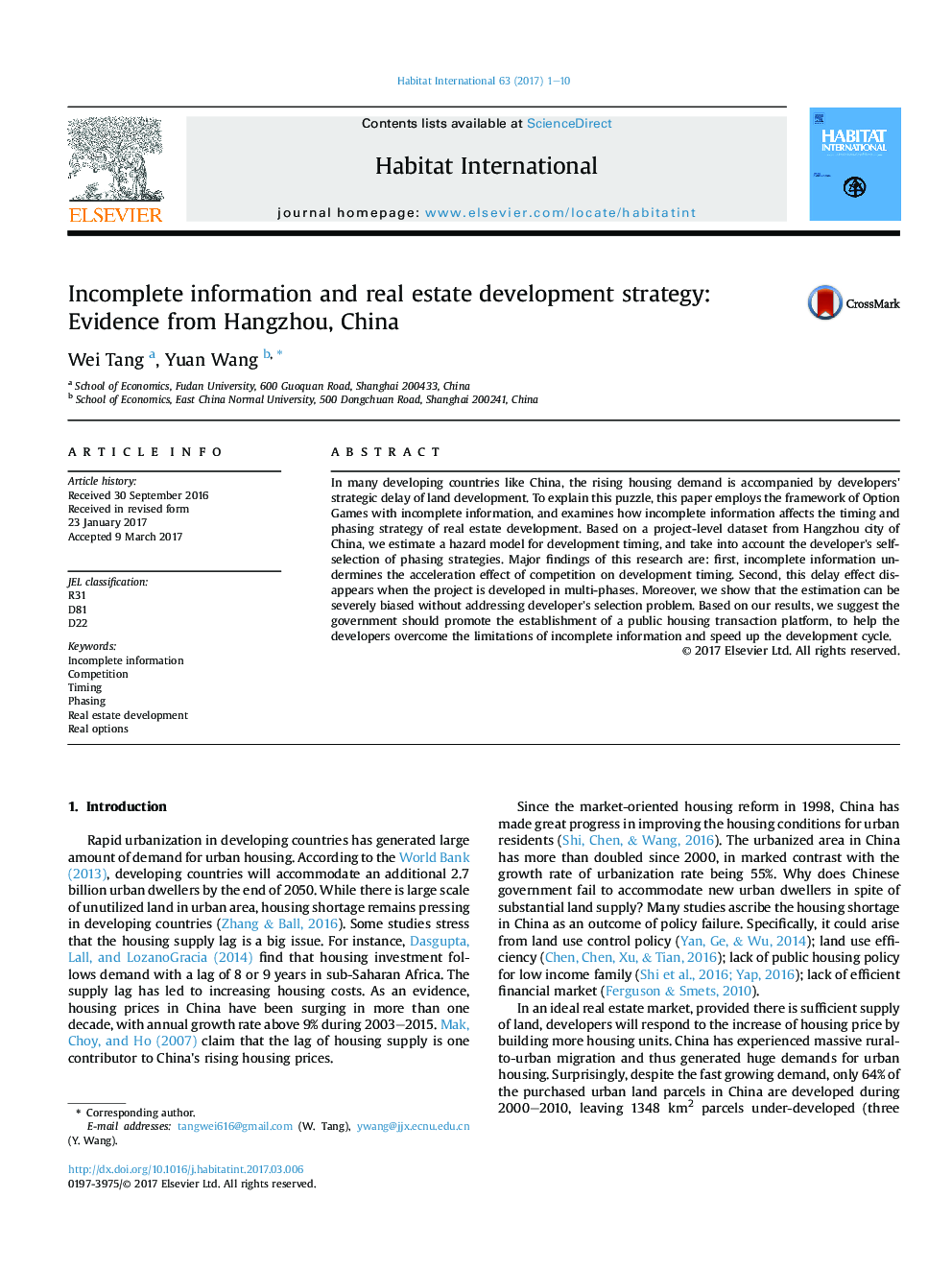| Article ID | Journal | Published Year | Pages | File Type |
|---|---|---|---|---|
| 5114649 | Habitat International | 2017 | 10 Pages |
Abstract
In many developing countries like China, the rising housing demand is accompanied by developers' strategic delay of land development. To explain this puzzle, this paper employs the framework of Option Games with incomplete information, and examines how incomplete information affects the timing and phasing strategy of real estate development. Based on a project-level dataset from Hangzhou city of China, we estimate a hazard model for development timing, and take into account the developer's self-selection of phasing strategies. Major findings of this research are: first, incomplete information undermines the acceleration effect of competition on development timing. Second, this delay effect disappears when the project is developed in multi-phases. Moreover, we show that the estimation can be severely biased without addressing developer's selection problem. Based on our results, we suggest the government should promote the establishment of a public housing transaction platform, to help the developers overcome the limitations of incomplete information and speed up the development cycle.
Related Topics
Social Sciences and Humanities
Social Sciences
Development
Authors
Wei Tang, Yuan Wang,
